The cute little tongue is also one of the cute spots on cats. Although you may rarely see cats sticking their tongues out, the expression of tongues out is so cute and cute. There are even cats who rely on their tongues to become celebrity. What secrets are hidden in the little tongue of the cat?
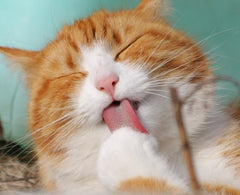
Cat’s tongue is full of barbs. It is a small tongue for eating, drinking, and grooming. Cat’s daily diet cannot be separated from it. Cats have about 800 taste buds, and humans have about 9,000 taste buds. Taste buds are the receptors on the tongue to feel the taste of food. Therefore, even the same food, it tastes different between humans and cats. This is the taste of taste buds. Caused by the difference.

So can the cat’s tongue really taste no sweetness? In fact, the cat’s tongue can taste the ups and downs, but the sensitivity to sweetness is very weak. Everyone who has made cat food knows that you can't add salt in the process of making it. In fact, cats’ tongues can taste salty and even like to eat salty foods, but because the body’s ability to decompose salt is very poor, it will cause greater damage to the cat’s kidneys and urinary system, and meat foods are essential. It contains a certain amount of salt, so you don’t need to add salt to make cat rice. Compared with white meat, many cats prefer to eat animal viscera. The viscera is rich in nutrients, tastes better than meat, and contains more salt. Therefore, as the owner, you must also control the intake of animal viscera in the cat's diet.
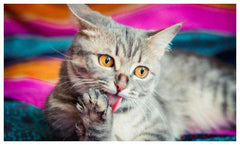
Food attracts cats not by our conceptual saltiness or sweetness. For cats, what attracts them is smell. Cats usually sense the suitability of food through their sense of smell, rather than by tasting them. Humans are omnivores, and sugar is our energy source. Therefore, when nutrients become energy sources, we think that it is sweet. When we eat cream, we will feel sweet and delicious. But cats are carnivores, and protein is their energy source. Therefore, if cats like to eat cream, it is not because they like the sweetness of cream. What attracts cats is the fat content in cream.
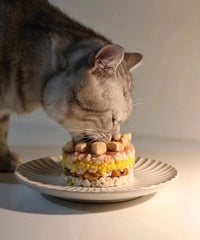
Not only they can’t taste the sweetness, but the cat’s liver lacks an enzyme. Without this enzyme, sugar can easily accumulate in their bodies and cannot be converted into usable resources. Thus, cat owners try to eat less food with high sugar content for your cats.
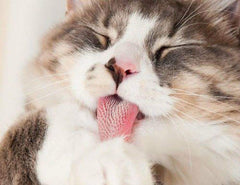
Hot tea, hot soup, hot pot, barbecue, mala Tang, etc., for many people, are simply hot and unpleasant, but hot food is probably a torture for cats. Cats’ tongues are naturally sensitive and they are particularly afraid of getting hot. In Japan, people often use "cat tongue" to refer to those who are afraid of high-temperature diets. The cat’s tongue is a health sign. If the cat eats food that is too hot or too salty, the sense of taste for the food will decrease and the sense of taste will gradually become dull. There may even be elderly cats who like to drink hot water, which is a sign of slow taste.
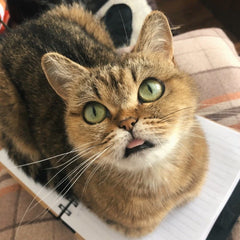
The favorite temperature of cat’s tongue is about 35℃, which is close to the body temperature of small animals. Hosts who want to stimulate cat’s appetite can try to keep food at around 35℃. When serving heated food to your cat, remember to let it cool before serving it to your cat. Do you understand the wonderful cat's taste? Correct the cat’s wrong eating habits and provide cats with more suitable food. The cat’s small tongue also needs careful attention from the owner to be healthy.






















